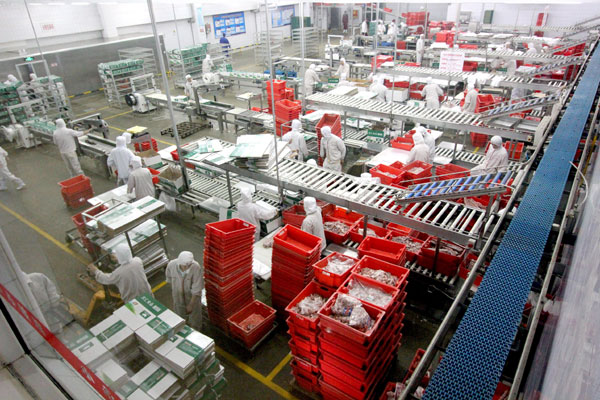Taking innovation to the next level
Although China has shown remarkable determination and skill in organizing and deploying resources to meet key objectives, there are still significant barriers that continue to limit its people's creative capacity. Critics of China's patent process point out that below-par standards, poorly designed incentives and a focus on quantity over quality have created a system in which "patents are easy to file, but gems are hard to find". Some of China's brightest minds, such as ex-Google China chief Lee Kai-Fu, note that China's educational system trains its students to be very good at rote learning but "doesn't make them creative, original thinkers". Others point out that Internet censorship and a lack of cultural diversity creates an overwhelmingly homogeneous environment that isn't conducive to creative thinking.
To fuel the next wave of innovation, China needs to combine these impressive investments with behavior and a cultural mind-set that foster truly disruptive innovation. No doubt this is easier said than done, but several bright spots of innovation direct us to deep wells of creative potential that can be tapped within Chinese people and companies.
For example, five Chinese companies landed spots on our "World's Most Innovative Companies List", a joint collaboration with Forbes Magazine and HOLT (a division of Credit Suisse Group AG) that we have run for the past three years. Companies on our list are ranked by their innovation premium: the difference between their market capitalization and a net present value of cash flows from existing businesses.
|
 Production lines at China's leading meatpacker and pork producer Henan Shuanghui Group, which is one of the five Chinese companies that have been included in the "World's Most Innovative Companies List", a joint collaboration with Forbes Magazine and HOLT, a division of Credit Suisse Group AG. Jin Yuequan For China Daily |
The five most innovative Chinese companies include meatpacker and pork producer Henan Shuanghui Group (ranked ninth on our list), Internet behemoths Baidu Inc (10th) and Tencent Holdings Ltd (17th), Kweichow Moutai Co Ltd (44th), and at 64th place, China Oilfield Services, a majority-owned subsidiary of Chinese State-owned company China National Offshore Oil Corp Group. What sets these companies apart as top innovators is they cultivate certain key behavior and cultural philosophies. As a part of our research on creativity and innovation, we studied dozens of similar companies to draw insights into how businesses and individuals can successfully innovate - despite the unique challenges they face.
What we found is that disruptive innovators frequently practice five fundamental "discovery skills" that distinguish innovators from non-innovators. Innovators ask uncomfortable questions that challenge the status quo. They observe the world like anthropologists to uncover novel approaches to doing things.
They network with people who don't think like them to access drastically different perspectives other than their own. They experiment relentlessly to pilot new ideas and often live outside their comfort zone. Collectively, these behaviors trigger new associations, which help them connect seemingly disparate ideas into highly disruptive and valuable innovations.
Take Henan Shuanghui, the third most innovative company in Asia according to our rankings, and China's largest producer of pork and other meat. The company made a splash globally last May when it picked up ham king Smithfield Foods Inc from the US for $4.7 billion.
Shuanghui has shown that it has a strong culture of observing, networking and experimenting. For example, studying the Oscar Mayer marketing playbook and networking with top-notch Western marketing companies gave the company the idea to invest $1.6 million in co-producing Shuanghui Forest, a 200-episode TV cartoon series featuring 10 characters modeled after its signature hot dogs.
Through robust experimentation, Shuanghui has also developed a cutting-edge quality control system that tracks the condition of 15 million hogs in factories across China. Leveraging these key discovery skills, Henan Shuanghui has maintained a long-term growth-rate of 97 percent and generated more than $ 6 billion in just the last 12 months.
Chinese policy makers, economic leaders and legislators can foster similar success stories in other companies by enabling the development and celebration of these critical skills in educational and professional settings.
An even more innovative China has much to offer its people and the world. Leaders and bold new moves by companies such as Henan Shuanghui offer a glimpse into what the next three decades of prosperity could look like if China marries its massive investment in patents, processes and research and development with the proven skills and philosophies of successful innovators.
Hal Gregersen is the Abu Dhabi Commercial Bank Chaired professor of innovation and leadership at INSEAD. Curtis Lefrandt is principal and vice-president of product and training at The Innovator's DNA.
























